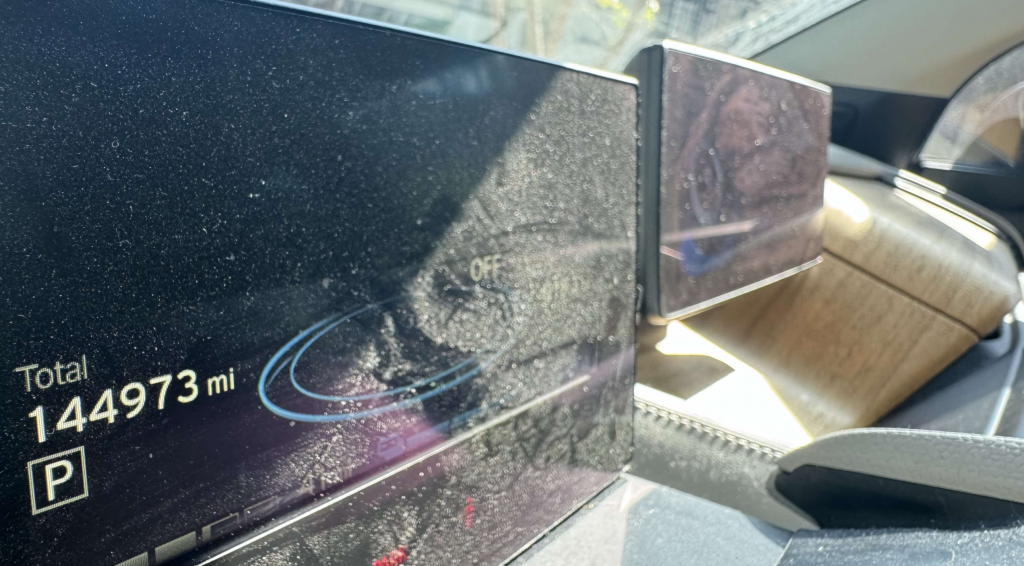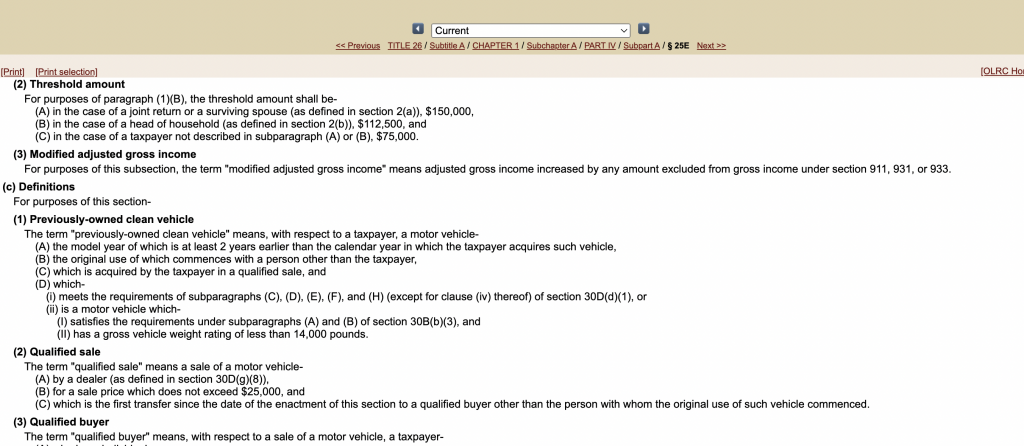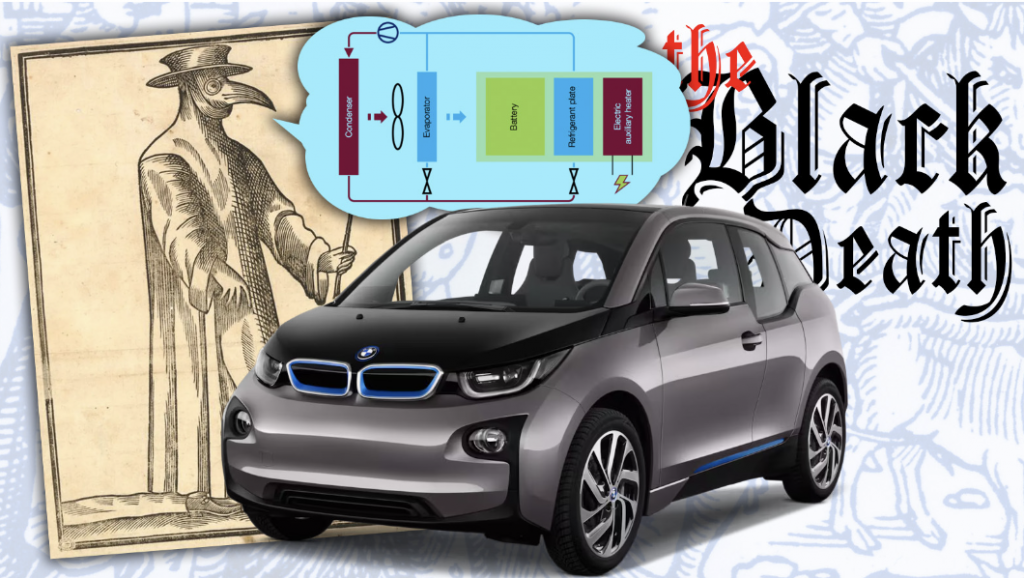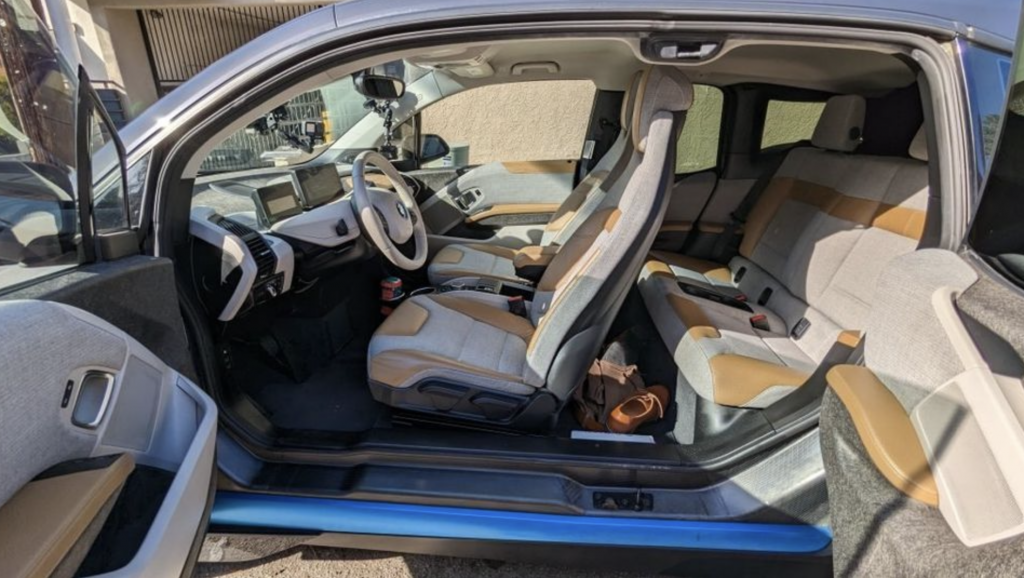Right now I’m selling an awesome electric car for an insanely good price, and yet nobody wants it for complicated reasons that really only apply to electric cars. Here, allow me to explain.
Back in the spring of 2023, I bought the cheapest BMW i3 for sale (by a dealer) in the country: A dark gray 2014 model with 135,000 miles on the clock for $10,500. For a carbon fiber car with a world-class interior, backup camera, self-parallel-parking feature, and an extremely good quality build, I thought it was a fantastic deal.
![]()
But the deal just got better. Because the California Air Resources Board requires all hybrids to have batteries covered for 10 years, 100,000 miles, BMW actually replaced my high voltage battery (which had dropped below the 70% state-of-health threshold) absolutely free. So now I have a fantastic range-extended electric car with a brand new battery, and I only paid $10,500. Over the past year, I’ve fallen in love with the i3, so much so that I subsequently decided to buy the ultimate version of the car, a 2021 i3S Giga World.
But it gets better. Now I’m having my car’s AC compressor replaced, also thanks to that CARB warranty, meaning the two major failure points on the BMW i3 are brand new. My i3 is basically a brand new car if you consider the value of the new components compared to the value of other wear components on a 145,000 miles vehicle, and if you get in and drive my i3, you’ll see that it feels like a new car, too.
Of course, now it’s time to sell the car (since I don’t need two i3s), and the process has been extremely difficult.
Obviously, selling the car for the same price that I bought a 135,000 mile i3 with an old battery and compressor seems a bit silly. Yes, a year has elapsed and EV values have crashed, but the car has clearly gained value.
It’s All About Mileage

The issue is trying to communicate that to buyers. The average American car-buyer simply looks at a car’s miles and uses that to assess condition. My i3 has 145,000 miles on it, so the average consumer thinks: “Uh, there are 10 i3s with half as many miles for less money; why would I buy that one?”
The answer, to us car enthusiasts, is obvious: A new high-voltage battery is a huge deal. And a huge compressor is also a huge deal. Those combined obviously outweigh the benefits of having 70,000 fewer miles on the suspension and brakes. Especially since it’s not clear that my 145,000 mile car is going to have more suspension/brake issues than a 70,000 mile car.
But impressing this upon buyers has been a challenge. Getting folks away from the “miles are everything” mindset that they’re used to is just not going to happen because there was really never an equivalent before. Even selling a car with a brand new engine isn’t quite the same, since ICE cars have complex drivetrains that wear out with miles. With EVs, drivetrains are simple, and the battery is a massive deal.
To be sure, miles don’t not matter; if all things are equal, they tend to indicate wear of certain components like suspension and steering and brake parts, plus they also are used to stand in as a representation of how much time the car was in service. And since time tends to degrade things like blower motors and other long-term-wear parts, miles are no doubt a worthy part of the “what condition is this car in” calculus.
But clearly a car with 145,000 miles and a new $30,000 battery and $5000 compressor is a better buy than a car with even 50,000 miles on a worn out battery and a compressor that can kill the whole car any second. But that’s a hard thing to impart upon someone, especially when cars tend to be valued by major valuation entities by mileage on the odometer.
But is is not my only issue.
Things Are Complicated: Tax Credit

The lack of understanding when it comes to the sheer value of a new battery/compressor is among my primary problems, but arguably as problematic is the way the government has set up the used EV tax rebate. It really, really hurts my sale prospects.
You see, an electric vehicle’s eligibility for the used EV tax credit (which is 30% of the sale price up to $4000) does not depend upon whether or not the vehicle has been used for the credit previously. My BMW i3, for example, has almost certainly never been used to receive a used vehicle tax credit because I’m fairly sure I’m the second owner.
And yet, I cannot offer a buyer the used EV rebate because of this unfortunate rule:
To qualify, a vehicle must meet all of these requirements:
- Have a sale price of $25,000 or less. Sale price includes all dealer-imposed costs or fees not required by law. It doesn’t include costs or fees required by law, such as taxes or title and registration fees.
- Have a model year at least 2 years earlier than the calendar year when you buy it. For example, a vehicle purchased in 2023 would need a model year of 2021 or older.
- Not have already been transferred after August 16, 2022 to a qualified buyer.
- Have a gross vehicle weight rating of less than 14,000 pounds
- Be an eligible FCV or plug-in EV with a battery capacity of least 7 kilowatt hours
- Be for use primarily in the United States
The bold print above may lead you to think “oh, it says qualified buyer, and you weren’t qualified for the rebate when you bought it.” Unfortunately, “qualified buyer” basically just means any buyer. And since I bought my car in April of 2023 (eight months after that August 16 date), the car is no longer eligible for a used EV rebate. Ever.
This is a huge issue when trying to resell an electric car. Why buy my i3 at $12,000 when you could just try to find a $15,000 later model and knock off $4,000? You basically get a $15,000 car for $11,000 instead of a $12,000 car for $12,000.
But there’s more.
Things Are Complicated: CARB Warranty

But there’s more to my plight here beyond just struggling to get buyers to understand how big of a deal a new battery/compressor is, and beyond being unable to offer buyers that tax rebate. To people who live in CARB states, my new compressor may not actually be a huge selling point.
The battery is still a huge deal, and who knows, maybe an educated buyer will understand that and buy the car for 12G’s (it is likely the cheapest, loaded Giga-World i3 with a guaranteed good battery in the country). But here’s the thing: If a CARB-state buyer picks up a BMW i3 with significantly under 150,000 miles on the odometer, they really don’t have to worry about the compressor. At least, not for a while.
That’s because the compressor — in CARB states — is covered by a 15 year, 150,000 mile warranty. My i3 will be out of warranty in 5,000 miles; if someone were to buy the aforementioned hypothetical 75,000 mile BMW i3 for less than my i3, they can be comfortable knowing that if their compressor goes bad, BMW will cover it until their car is 15 years old or has 150,000 miles on the clock. Their battery, too, has a 10 year warranty, so if a buyer picks up a 2015 or 2016, they could theoretically get a new battery should theirs fail.

But see, that’s a big if.
If a buyer were to pick up, say, a 2016 BMW i3 for $9,000, they’d be thrilled that they got a newer car with way fewer miles for $3,000 less than my car. But there’s a good chance their battery will not drop below the 70% threshold by year 10, and there’s a chance that compressor will hang on for 15 years.
We’ll ignore the compressor/15 year warranty since that’s six or seven years out, and buyers don’t care about that. But the battery thing is a big deal. When that 10 year-warranty passes in the next year or two, the buyer could be stuck with a car that has a 75% battery state of health. With my car, instead of driving a vehicle with an eight year-old battery that has 75,000 miles on it and probably an 85% state-of-health, you get a brand new battery. And if you’re worried about the 145,000 miles spelling the end of that 15/150 warranty, never fear, for the compressor is brand new.
My i3 Is A Great Deal To A Very Specific Customer. Very Specific.

So here’s the thing: Yes, it’s hard to convince buyers how valuable a good battery and compressor are; and yes it’s gonna be tough to sell the car at $12 grand given that it’s not eligible for the used EV rebate; and yes, CARB-state customers are going to say their car is still in warranty anyway.
But to a very specific customer, my 145,000 mile BMW i3 perfect. But that customer is very, very specific.
BMW i3 customers are already rare given that it’s a relatively low-range small car in a country that loves big trucks, has range anxiety, and is overrun by increasingly-cheaper Teslas with more range. But even among those folks looking specifically for i3s, I need to find a customer who a) Doesn’t live in California and b) Isn’t eligible for the IRA rebate.
For example, imagine a single person making over $75,000 AGI (or perhaps they already took a used EV credit within the past three years) and living in, say, Texas, looking for a budget-friend i3 for commuting from a suburban ranch to a workplace in town. If this person wanted a loaded i3 Giga World with a guaranteed good battery, they’d have to buy a 2017+ i3, since the 2017s had great batteries that degrade minimally. But then they’d still have the concern about the compressor; if it goes out, they could be legitimately hosed.
For this out-of-stater who doesn’t have the security of the CARB warranty and who also isn’t looking for an IRA rebate-eligible i3, then you could argue my i3 is the best deal in the country. But my god is this a ridiculously specific person I’m looking for.
Yikes.
Anyway, I just thought I’d share that, since some of these issues are ones I’ve never had before when selling ICE cars. There was no IRA rebate to factor in, there was no ridiculously long CARB warranty, there wasn’t a massive knowledge gap in the general public about EVs.
Maybe I just need to be patient, or maybe I just keep the gray car and let the Grail go. If it’s between that and letting a perfectly good i3 go for a song, the cheap bastard in me will probably win out…




